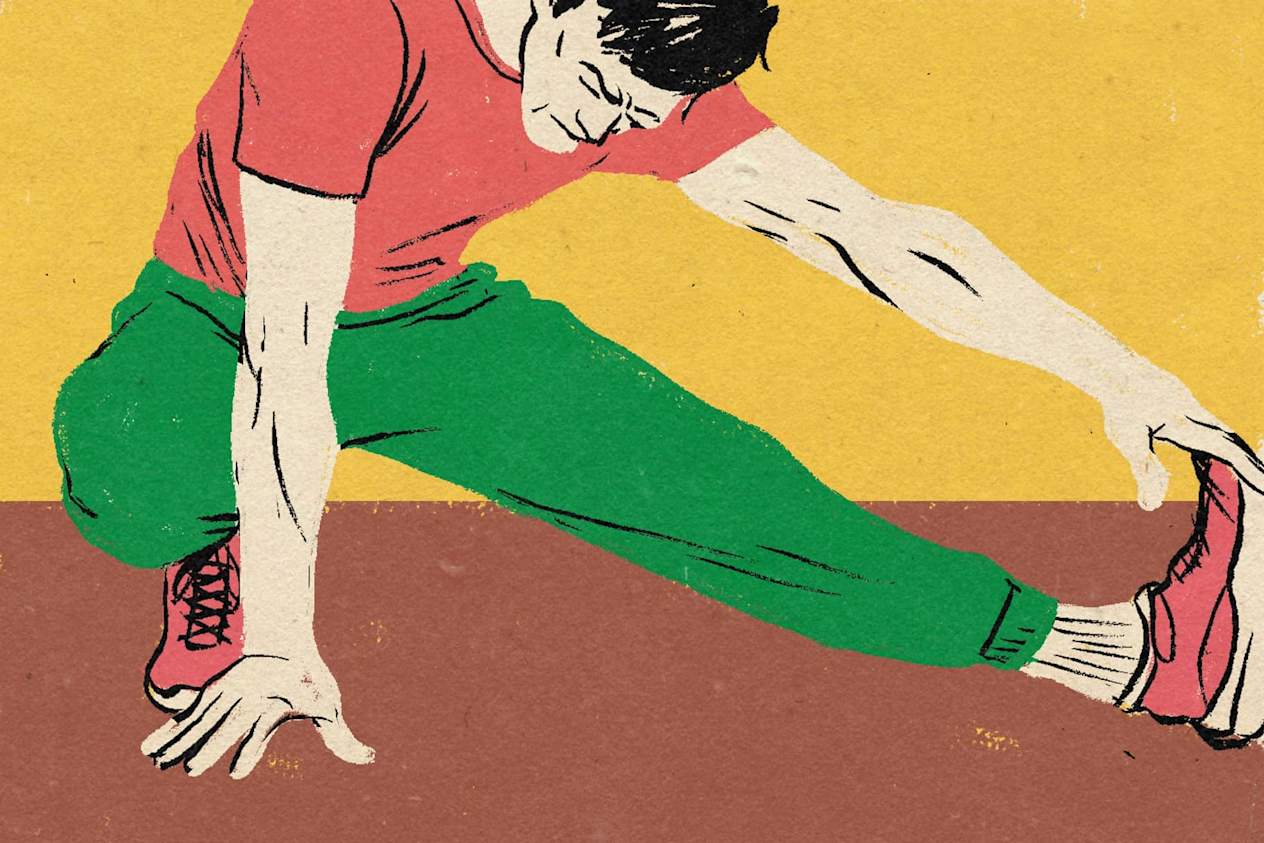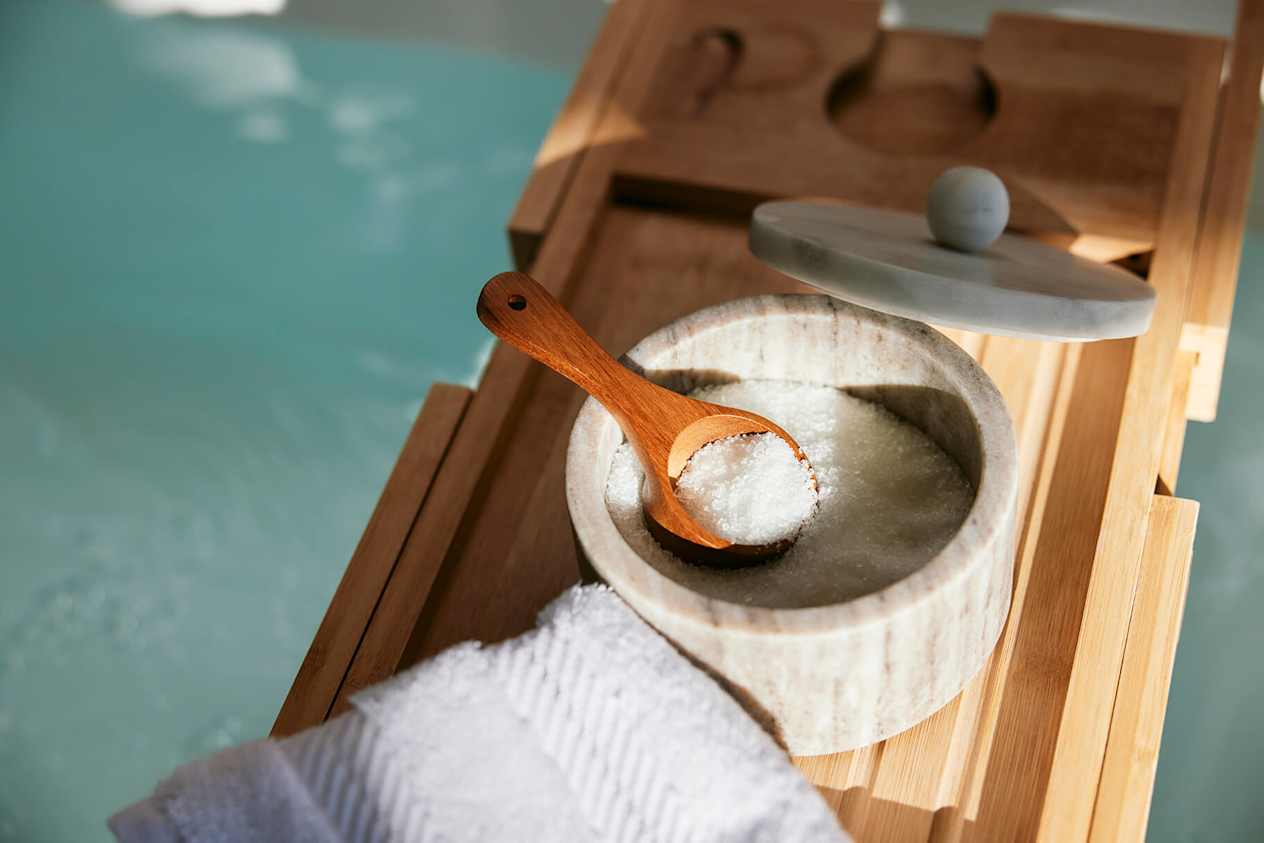5 Health Benefits of Infrared Saunas, According to Experts
Health & Wellness
Several experts break down the science supporting infrared sauna use and how they can improve overall health.

For some, sauna bathing is a common post-workout ritual — and for good reason. These small hot rooms induce sweating and offer several health benefits. And unlike traditional saunas — that heat the air, which in turn heats the body — infrared saunas heat the body directly via infrared light.
While traditional saunas may get as hot as 180 degrees Fahrenheit, infrared saunas reach temperatures between 110-140 F, explained Shaina Painter, M.S., C.N.S. Since the temperatures with an infrared sauna are lower, they’re more comfortable and safer to experience for longer periods of time.
“I often recommend infrared saunas to my patients and use them over other types of saunas,” said Monisha Bhanote, M.D., F.C.A.P., A.B.O.I.M., an integrative lifestyle physician.
“A sauna that uses infrared heat penetrates the skin more deeply than a sauna that uses warmed air,” she said. “As a result, you sweat more intensely at a lower temperature.”
Read on to learn more about how this form of sweat therapy promotes relaxation and wellness.
5 Potential Health Benefits of Infrared Saunas
Both infrared and traditional saunas offer health benefits, including boost circulation and heart health, said Rathna Nuti, M.D., F.A.A.F.P.. Think of an infrared sauna as causing responses in the body that are similar to those induced by moderate exercise, said Jennifer Bontreger, D.O. Here’s a look at how they could boost your wellness and athletic performance:
1.Soothes Sore Muscles
“Improved blood circulation brought on by an infrared sauna session can help speed up muscle recovery following physical activity,” Bontreger said. “Regular use may even help athletes improve performance.”
She pointed to a small-scale 2015 study consisting of 10 physically active men, which found that 30 minutes in an infrared sauna after a tough endurance workout improved neuromuscular recovery compared with those who didn’t use the sauna.
(Related: The Benefits (And Drawbacks) Of Hitting a Sauna After Working Out, According to Pros)
2.May Help with Chronic Pain
Infrared sauna therapy might also be a promising method for the treatment of chronic pain, Bontreger said. For evidence, she pointed to one small-scale 2008 study. Patients with rheumatoid arthritis and an inflammatory disease known as ankylosing spondylitis felt more comfortable after eight sauna-bathing sessions over the course of four weeks.
3.Can Reduce Inflammation
Using an infrared sauna has been shown to exhibit an anti-inflammatory effect on the vascular system, Painter said. Sessions trigger heat shock proteins — a protein family activated by elevated body temperature — that aid in the reduction of cellular damage caused by reactive oxygen species and other free radicals.
“Heat shock proteins have been shown to prolong lifespan and improve the overall aging process,” Painter said.
4.Detoxifies the Body
“Sauna therapy, either traditional or infrared, may improve the body’s excretion of toxic elements,” Painter said.
A 2012 study showed that the body prefers to excrete heavy metals through sweat rather than urine or blood, she explained.
“Reducing our toxic load may cut down on oxidative damage, premature cellular aging, and disruptions to organ systems, like the endocrine or cardiovascular system” Painter said.
5.Lowers Blood Pressure Levels and Promotes Heart Health
Heart disease is the leading cause of death for men, women, and people of most racial and ethnic groups in the U.S., according to the Centers for Disease Control and Prevention. Studies have revealed that infrared saunas can help boost heart health and reduce blood pressure, Painter said.
In particular, infrared saunas may benefit those who exhibit risk factors of coronary artery disease, like high cholesterol, high blood pressure, and diabetes. Here’s why, according to Painter: Using infrared saunas may help increase the production of nitric oxide. This, in turn, dilates (widens) the blood vessels, to help improve blood flow and circulation.
There’s research to back it up: A 2017 study published in the Journal of Human Hypertension revealed that one, 30-minute sauna session decreased artery stiffness and improved blood pressure. For a 2004 study, patients with at least one coronary risk factor bathed in an infrared sauna daily for two weeks. The results were reduced systolic blood pressure and oxidative stress levels for participants. And a different 2004 study, which looked at patients with congestive heart failure, showed that participating in a two-week program of one, 15-minute infrared sauna session daily may improve irregular heartbeats.
Tips for Using Infrared Saunas
In general, aim to sauna bathe two to four times per week, Painter said. If your goal is recovery, immerse yourself post-workout.
Before your sessions, dry brush, Painter recommended. This practice of using a dry, stiff-bristled brush to massage your body helps the lymphatic system excavate waste via sweat. To try it, begin at your feet and brush upwards, using wide circular motions.
Then, sauna bathe for anywhere between five and 30 minutes (generally no longer than 15 minutes in traditional saunas). While you acclimate to the sauna, begin with a temperature of 100 F and increase it over time to 140 F, Painter said. If you experience warning signs of hyperthermia or overheating, end your session, she said. Watch out for dizziness, headache, nausea, elevated heart rate, blurred vision, muscle cramps, and pain.
Post-sauna, cool down gradually to avoid swings in blood pressure, Painter said. Try a two- to five-minute break before taking a cold shower or plunge.
Another important tip? Make sure you’re hydrated before stepping into a sauna. “It is important to hydrate yourself at least 24 hours before your session and right after so you don't overheat, feel lightheaded, or suffer from dehydration,” Bhanote said.
Aim to drink at least 64 ounces of water total before, during, and after your session, suggested Melissa Nicolletti, M.D.
“If you tend to feel dizzy or lightheaded with sauna use or are prone to low blood pressure, try an electrolyte [tablet or drink mix] to avoid dehydration,” Painter said.
Who Should Avoid Infrared Saunas?
Always consult with your physician before considering this form of therapy. Michelle Henne, M.D., said to avoid the sauna if you have any of these health conditions:
- Severe aortic stenosis (a heart condition)
- Chest pain due to heart disease
- Recent heart attack
- Recent stroke
In addition, saunas are not recommended for those who are elderly, pregnant, or for children. Also, do not consume alcohol before entering a sauna.
Words by Dina Cheney




